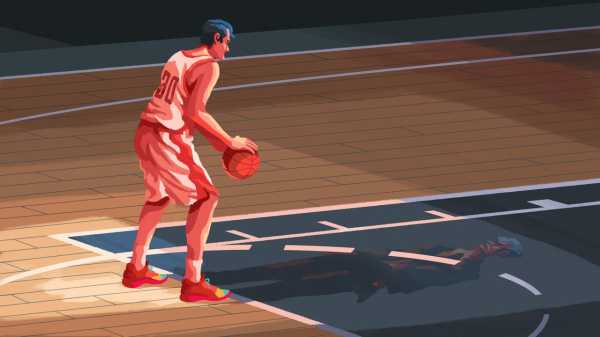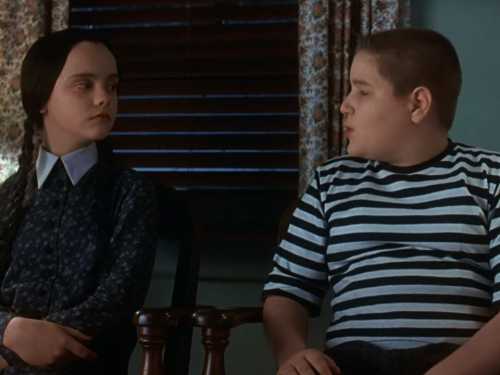
My father died, of cancer, when he was fifty-two. He wasn’t, as far as I know, into sports or exercise of any kind. He was trim, about six feet. He smoked, he drank coffee, he combed his thick black hair into a tidy side part, and he knew how to knot a tie. He looked good in suits. Beneath his eyes, dark circles. To be a trim man in middle age whose main exertions involve lifting cigarettes and coffee to your well-shaped lips is, in a way, a kind of athleticism.
I am now older than he was when he died, and, in the months and years since I outlived my father, I’m aware of a change in the way that I think about him. I have become, in some respects, the senior figure in the relationship. Instead of wishing he could console me, I want to console him—to put my arm around his shoulder and tell him he did a good job, all things considered. A great job, really. Surviving his childhood, escaping Vienna in 1938, getting through high school and college and medical school, making a life, meeting my mother, having a family, by which I mean having me. The cancer, and the early exit it portended, must have been so depressing. I shudder to think of it from his point of view.
The only time I ever recall discussing sports with him was when I went off to trophy day at the day camp in New York City that I attended, age six or so. Turning in the apartment doorway to face my mother and father, I insisted to them, promised them, assured them that I was not going to be getting a trophy, while they beamed at me. I got one, for swimming, perhaps because I didn’t sink. I still have it. Other than that, my father and I didn’t play, discuss, or watch sports.
I had been aware, as I approached the age of fifty-two, that I would soon outlive my father. If one’s age is a tally of years, months, days, hours, then one could say that outliving someone is the equivalent of outscoring him; in the terminology of N.B.A. stats, you would rise above him on the minutes-played list. I had a vague notion that the day would come around the halfway mark between fifty-two and fifty-three. I planned to commemorate it quietly. I was a little afraid of it. Perhaps that is why I never calculated the exact date.
My father was a psychoanalyst; once, when I was a teen-ager, I read some pages in one of the books lying around the house that had to do with the topic of latent repression. The term has stayed with me since, perhaps because I had misremembered it as “latent compression.” I found the idea provocative: that there would be a period of time when a child is filled with all kinds of desires and urges, but then, when he is around seven or eight, the period of latency begins, and the memory of all these infantile desires and urges goes into the trash compactor. They are obliterated, more or less. Then comes puberty, during which all these desires reëmerge with even more force and volatility. And they seem entirely new. You forgot about the earlier versions. I think I focussed on this idea because, at the time I read about it, I was post-trash compactor, but not by much. I wondered, What memories was I suppressing? What would it be like to remember them?
There must be an equivalent to latent “compression” when it comes to outliving your parents—not in the sense of continuing to live after they die but in the outscoring sense, especially if your parents died young, as my father did. I didn’t want to think about outliving my father in the run-up to the moment that I would outlive him, because it seemed to invite some hand of fate to smack me down just as I was arriving at . . . what? The logic of the sentence appears to suggest “the finish line.” But what was being finished? I perceived the possibility that I would feel guilty at the prospect of outliving him, and then, as though in punishment for the hubris of this preëmptive guilt, I would die in some freakish way right before I could outlast him. This was the logic, or illogic, of the fear. But even that was compacted. It all disappeared.
At some point in my early twenties, it occurred to me that although he was no longer here, with me, my father’s life was like a map unfurling beneath mine. Up to the age of fifty-two, I could, if I wanted, pause and wonder, What was my father doing when he was my age? I wouldn’t know the answer to this in any detail, and I rarely had this explicit thought. But it was the condition in which I lived. Then I arrived at a point—the finish line or the starting line or just an arbitrary accumulation of days, a number—when this was no longer possible. A new era. I was on my own. In a way, you could say I was without a father, again.
Some months after I turned fifty-two, I found a Web site that calculates the time between dates. I typed in my father’s birthday, in 1922, and the day of his passing, in 1975. It turns out he lived for 19,240 days. I had an irrational pang of sadness that he didn’t make it to twenty thousand days, as if two more years would have made all the difference—though, to a nine-year-old, they would have made a big difference. Then I input my birthday and the date of the search. A number appeared. Subtracting one from the other, it became apparent that I had outlived—outscored—my father a couple of months earlier.
I sat back and thought about what was going on around that time. I scanned the horizon for ironies. Nothing came to mind. Then I remembered that crazy game, an unusual night. I play in a half-court basketball league for the thirty-and-over age group. It is called Mellowball. Three-on-three. A ref, a clock, a scoreboard that buzzes loudly at the end of each quarter, and, as a bonus, a scorekeeper. I checked the dates, did the math. And, lo, it turns out that on the exact day I matched the life span of my father I scored more than a hundred points in a game of basketball.
The first person to whom I dared report this obscene point total was a friend I made playing pickup basketball on a playground in New York, one of the very few friends, if not the only one, who made the jump from my basketball life to my real life. He gasped when he heard the exact point total, a hundred and sixteen. Then he inquired, with a certain strained politeness of tone, “What was the level of competition?”
“Kind of low,” I said. “But they were all ambulatory adults.”
Then I added, in an attempt to take the level of the competition out of it a little, “I hit seventeen three-point shots.”
My father grew up in another country, and, except for the nine years we overlapped, he lived in an era totally different from mine. Now and then, I will see my young son reach for an apple and recall that when my father got on a train in Vienna, in 1938, leaving home forever at age fifteen in flight from the Nazis, he had with him a bag of apples. It was a level of economy, pared down to the essentials, I will never know.
The Mellowball league has a scorekeeper, which is why I can confirm how many points I scored. He takes his role as the official stat keeper rather seriously, arriving at games with a black briefcase into which, at the end of the night, he deposits his meticulously kept score sheets. He maintains a list of the league’s scoring leaders, which gets posted on a bulletin board, but the score sheets and their information—two-point field goals, three-point field goals, made-and-missed foul shots—are his private property, and these he files away in his own personal archive.
There were several strange things about the night. I had put up some numbers in this league before—a sixty-point game, a seventy-point game. On the night of the hundred and sixteen points, we had only three players—usually there are four or five, which gives us some opportunities to rest—and one of the players was a sub. He was pretty good, so the other team had to guard him. But he was just subbing, doing us the favor of filling in—that way, we wouldn’t have to forfeit—and he was perfectly happy to throw me the ball and let me shoot, and, since he wasn’t really on the team, I didn’t feel guilty about taking all the shots.
Guilt is a big part of my game, especially because I am, by normal standards, tall. If I score inside, it’s because of that fact. And if I shoot outside, I’d better make my first shots, otherwise everyone will start insisting I go do the dirty work of rebounding their missed shots. I often think I play my best basketball in games of one-on-one, because that is the only circumstance in which I don’t have to feel guilty about taking all the shots.
On the hundred-point-plus night, my team won—not a blowout but a comfortable margin. And yet it was a night of wild emotion for me because, late in the game, the scorekeeper called out from his table, “Tom, you have ninety. You’re going to get a hundred!” Knowing that I was so close to getting a hundred points made me really want to score whatever was missing, and, at the exact moment this wish rose up in me, I became convinced that I would not make it. It would be one of those horrible jokes of life—the greatest shooting night ends with your scoring ninety-nine points and feeling like a failure. I saw it all as a movie. The very unfairness of it—that a night of triumph would turn into a night of utter defeat—was so exquisitely awful that it felt all the more inevitable.
Never would I score this many points again, I thought, reasonably, and certainly not in the presence of a statistician who keeps such close track of the two-point shots and the three-point shots and the foul shots and then takes it home in his briefcase. This was going to be my one chance to hit that mark. I had been playing with a lot of energy, but upon hearing this news I became frantic. There were about six minutes left in the game. In the immediate aftermath of the scorekeeper’s comment, I missed my next few shots, but then I settled down. Even when I got to the hundred-point mark, I didn’t let up—any sense of closure or accomplishment eluding me. I was in a panic until the final buzzer.
Afterward, I took a picture of the score sheet, partly as a souvenir and partly because I was sure no one would believe me. I noted that I had hit seventeen three-point shots. The fulcrum of my pleasure in the game was launching these Dirk Nowitzki moon balls over and over while the other team refused to accept that they were going in because I was too tall to be taking those shots. I remember that the most athletic guy on the other team was wearing a knee brace. He was probably in pain the whole time. It’s all ridiculous, this pride I take in the hundred-and-sixteen-point night. And yet, incredibly, that was the night that I outlived my father.
Maybe all this mournful stuff about my father is really just a distraction from the slightly undignified fact that I am a middle-aged guy who spends a lot of time practicing his three-point shot. And also practicing my dribble. I wonder what my father would make of it all. My sense is that he would feel skeptical or even slightly contemptuous of my devotion to the game, to say nothing of my preoccupation with what happened on the court that night. On the other hand, he might like this essay. I can almost hear him saying, in his smoky Viennese accent, that I should give myself a break, that I should allow myself the pleasure of taking pride, that life is short. A pat on the back. I’ve written myself, I suppose, to the place where we have some kind of exchange on the subject. It is as though I’m excited to tell him the news. ♦
This is drawn from “Lost in the Game: A Book About Basketball.”
Sourse: newyorker.com






